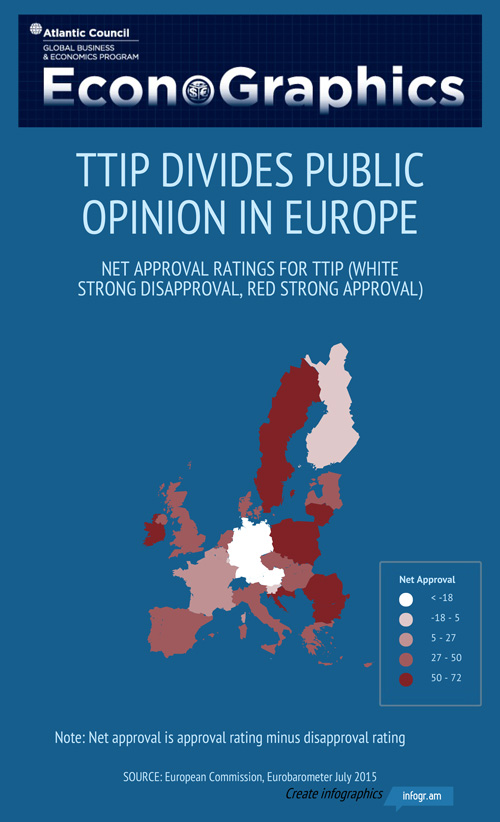On October 10th, hundreds of thousands of concerned German citizens marched in Berlin to protest the proposed Transatlantic Trade and Investment Partnership (TTIP). TTIP’s critics argue it benefits corporations at the expense of ordinary citizens, while its proponents argue it provides significant economic growth.

In the European Union overall, TTIP enjoys fifty six percent public support, with only twenty eight percent of the population disapproving. This statistic illustrates TTIP’s broad support throughout European society, with only the populations of Malta, Luxemburg, Austria, and Germany disapproving.
The German economy is arguably the most efficient economy in the European Union, and is projected to be one of TTIP’s greatest beneficiaries in terms of exports. However, the German public is largely unsupportive of the deal, with many Germans fearful that TTIP will lower regulations.
At the same time, the major support for TTIP throughout Eastern Europe could be viewed through a geopolitical lens: that is, as a means to further strengthen American ties as a counterbalance to their Russian neighbor.
In spite of public opinion, German government officials still heavily support the deal. In response to the anti-TTIP rally, German Chancellor Angela Merkel stated, “The Federal Government considers the reservations…to be unfounded.” (EurActiv). German business associations also voice support for the deal although with more reservations.
Regardless of the potential effects of TTIP, the European Commission will have to keep in mind the concerns of the German population—one of Europe’s most powerful interest groups.
http://www.euractiv.com/sections/trade-society/german-government-hits-back-after-ttip-demo-318464
